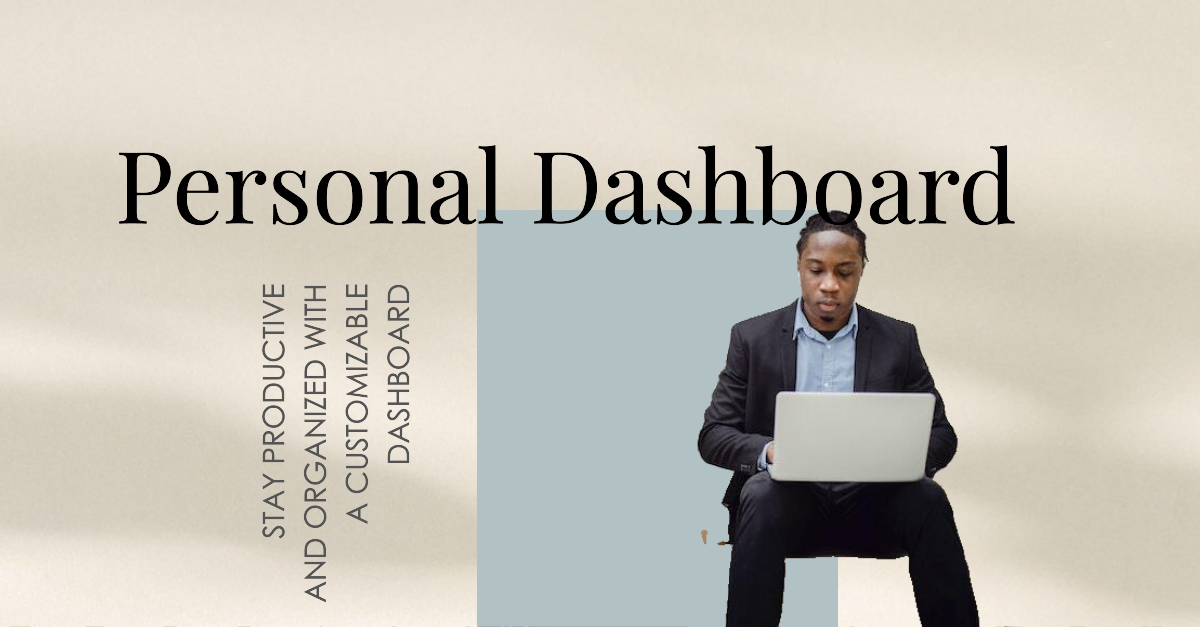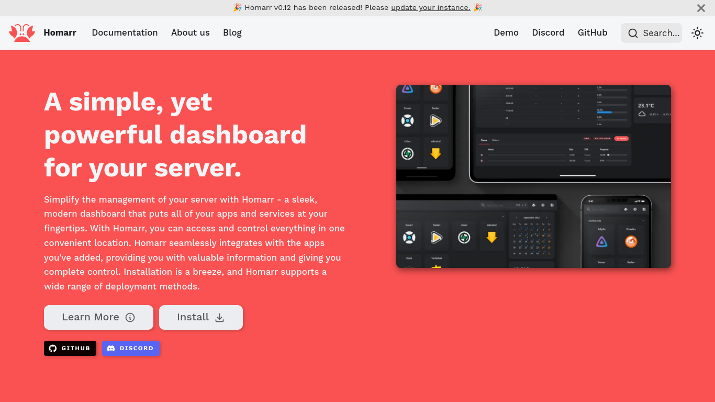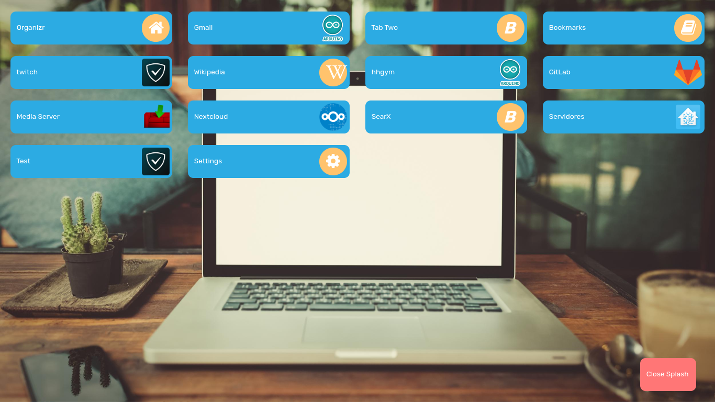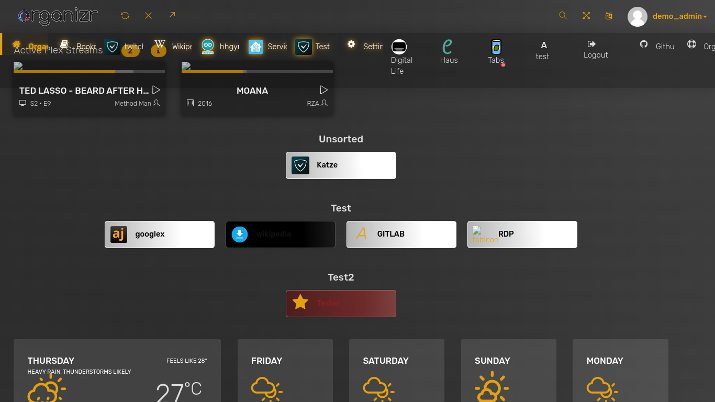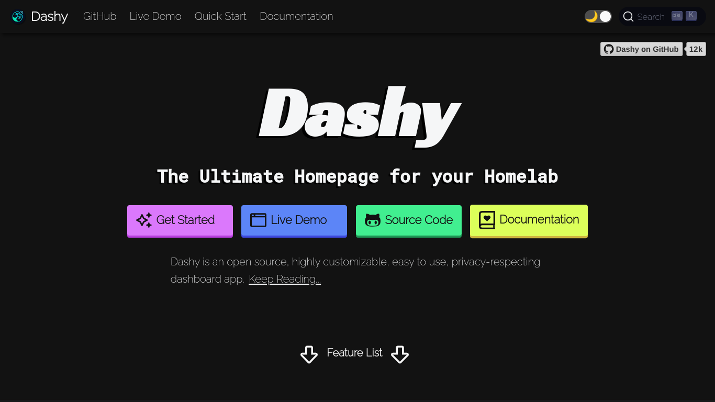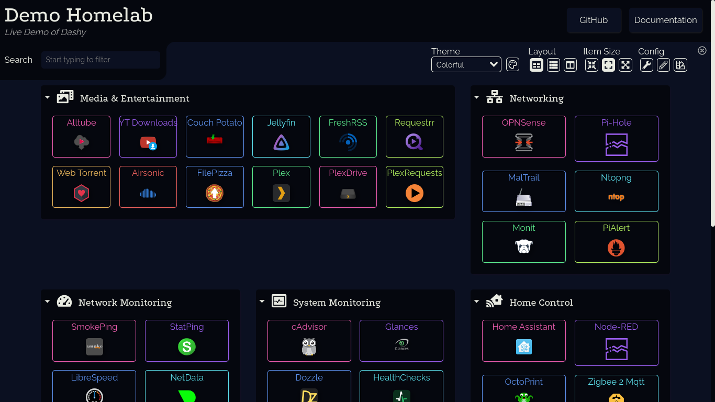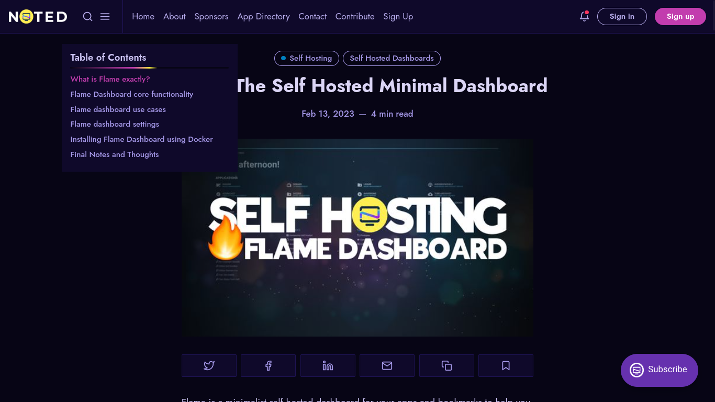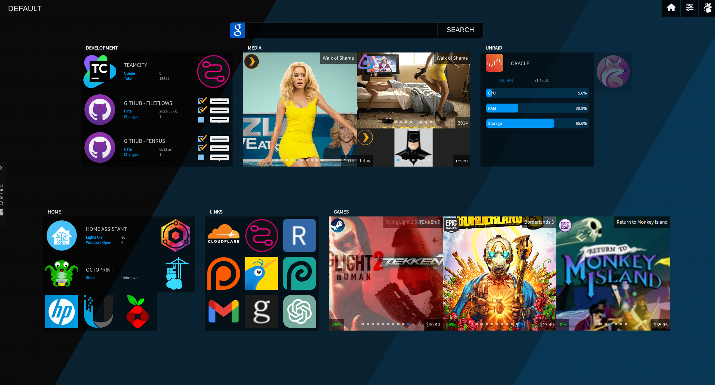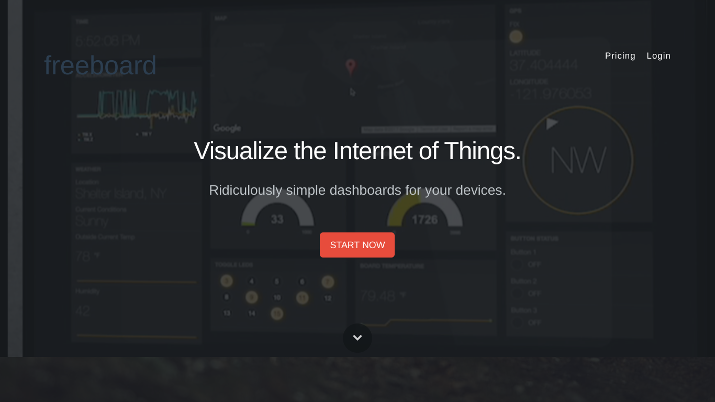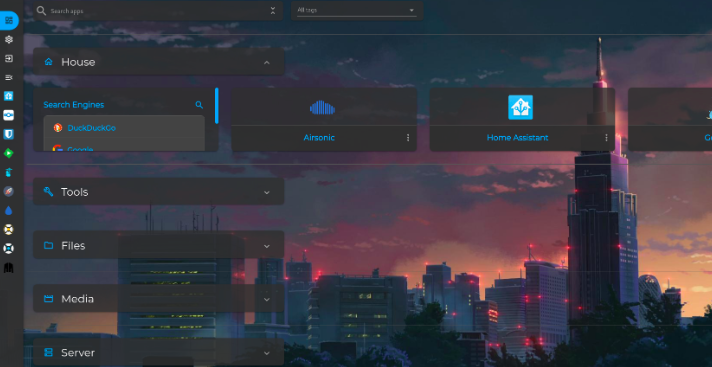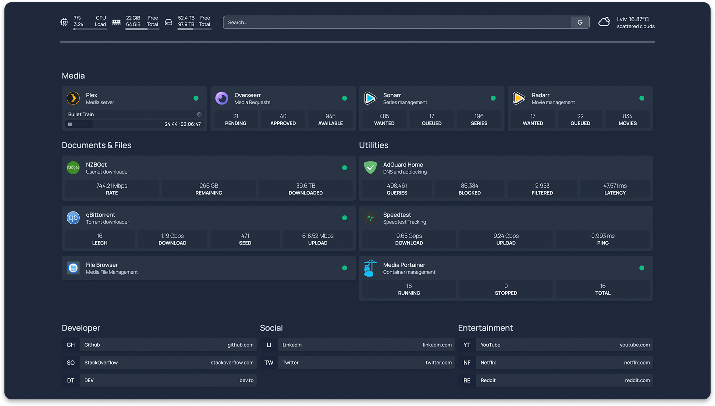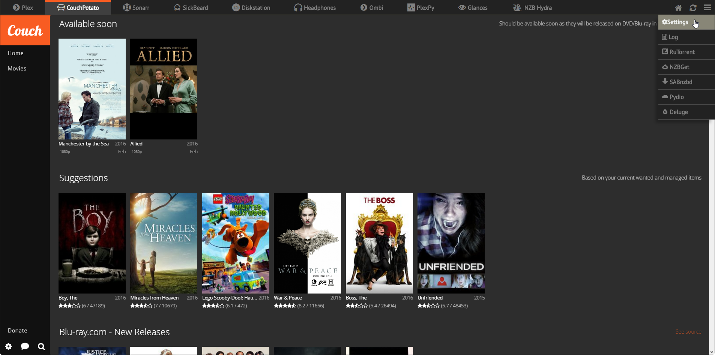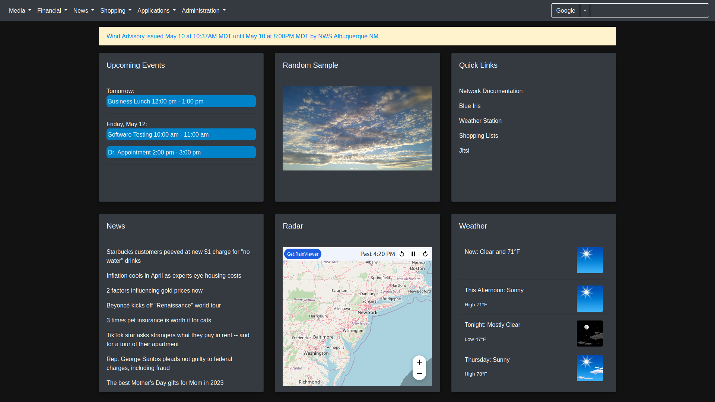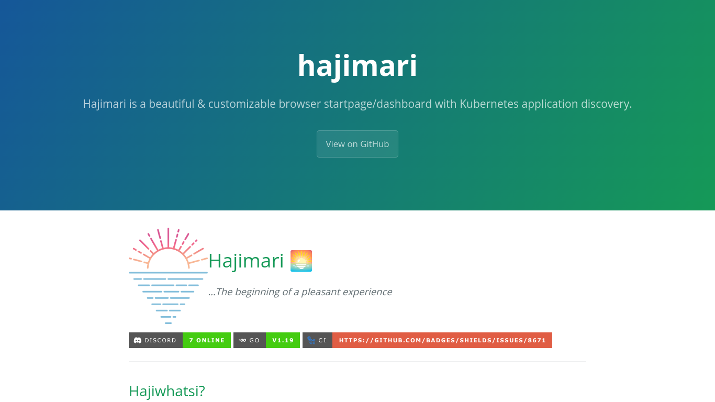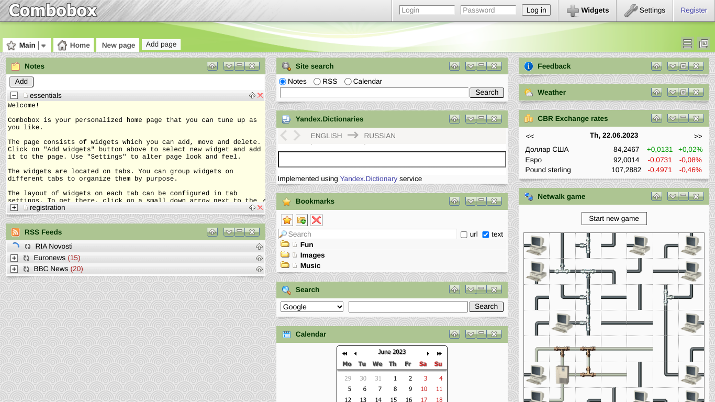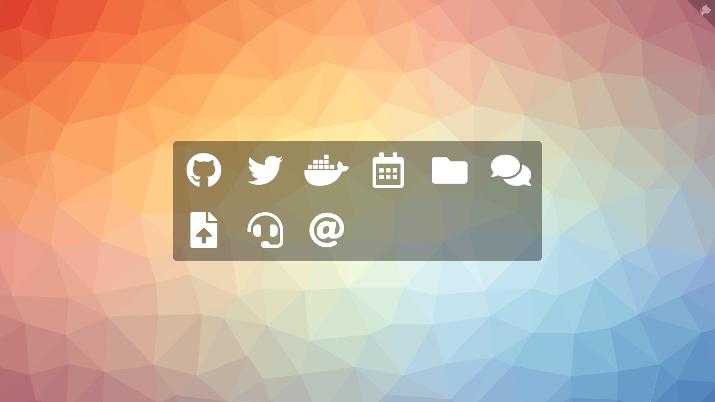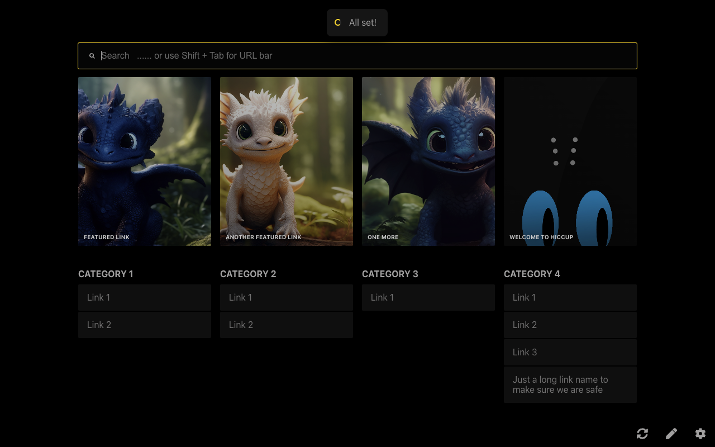Heimdall is a self-hosted application and link management dashboard. Using Heimdall, you can create a personal, self-hosted dashboard where you can link your favorite apps.
You can add any link or bookmark to Heimdall, even if there is no built-in support for it. However, some apps will autopopulate with an icon and color, while other apps even allow you to connect to APIs, so you can display updated data from the app.
However, Heimdall isn’t for everyone. Some people just don’t like the overall interface and look of Heimdall, while others would prefer something with better grouping options.
Perhaps you don’t even want to self-host but are looking for an alternative that has an option to host on a public instance.
Whether you are looking for a complete alternative to Heimdall or you need a second option for certain app stacks, this article is for you. No longer will you have to scroll through endless bookmarks in your bookmark tab.
Short version: The best Heimdall alternatives are Homarr, Organizr, and Dashy. They are highly popular, extremely intuitive, easy to set up, and offer an excellent user experience.
For more Heimdall alternatives, continue reading!
17 Best Heimdall Alternatives – Self Hosted Personal Dashboard
1. Homarr
Homarr is a modern and clean dashboard for your apps. You can add any website or self-hosted app to your dashboard and drag them around in the order you like.
Homarr has over 700 icons for popular apps, websites, and services, as well as general icons. It also offers around 15 integrations with torrent clients, Usenet clients, media servers, and more.
For example, it integrates with three torrent clients: qBittorrent, Transmission, and Deluge.
I love how customizable the dashboard is. You can choose from different colors, switch to dark mode, and add your own icons if you can’t find the icon you are looking for.
Like Heimdall, it allows you to add a search engine such as DuckDuckGo or Google, so you can search the internet directly from your dashboard.
You can also customize the layout of the page, enabling or disabling the sidebars, for example. One of the benefits of Homarr is that it has a visual interface editor, which means you don’t need any YAML or JSON to create your own personal dashboard.
If you struggle with YAML or JSON, Homarr could be better than Heimdall for you.
I also liked how you can set up ping indicators. The dashboard will ping your apps and display an online status if an appropriate response is received. You can choose which responses should be used as an indication that the app is online.
There are also a lot of widgets. Here are some of the widgets you can add to your dashboard:
- A bookmark widget for your favorite links
- A clock widget to display the current date and time
- A calendar widget that displays upcoming content
- An iFrame widget that allows you to integrate apps that are otherwise not supported
- A torrent widget to display torrents and upload/download speeds
- An RSS widget to pull news updates from websites
Homarr supports 23 languages as well.
Homarr is on GitHub, but it also has a Discord server with over 1,000 members. So, if you need any help setting up or configuring Homarr, you could ask the community for advice.
Also Read: Best Gitlab Alternatives
2. Organizr
I also highly recommend Organizr, which is a simple and clean dashboard for organizing apps and bookmarks. One thing I like about it compared to Heimdall is its auto installer, which works on Windows and some Linux flavors, which makes installation easy.
You can also set up multiple tabs in Organizr, with each tab set to open up in an iFrame or in another window. You can drag and drop the tabs to change the order in which they appear, edit their information, and set up options such as a ping to show when a service is online.
Tabs can also be set up to close automatically after a certain period of time.
As you can see in the demo (shown in the screenshot below), you can have a header menu with a bunch of apps and then additional apps sorted and organized on the page. The icons on Organizr are awesome – I really liked the visual aspect of it.
Check Out: Gitlab vs Jenkins
For more information on installing, setting up, and customizing Organizr, see the GitHub page.
3. Dashy
Another excellent alternative to Heimdall is Dashy, an open source home lab dashboard. It is fully customizable and allows you to add shortcuts to apps like AllTube, FilePizza, and many others.
Switching between layouts is easy by selecting one of the layouts at the top of the page. You can choose a horizontal or vertical layout or an automatic layout that organizes your dashboard into different sections based on app type (networking, network monitoring, media and entertainment, etc.).
There are also many themes available. I like the colored theme, but if all the colors are too much for you, you can pick from any of the other themes in the drop-down theme menu and switch from one theme to another at any time.
Also Read: Best Programming Software Examples
Not only that, but in addition to the 25+ themes already built into Dashy, you can create your own custom themes or customize existing themes using CSS.
One cool thing about Dashy is that you can back up your configuration to restore it later on another instance. Since it’s optional, you don’t have to enable the backup feature.
However, if you do, it could also allow you to use Dashy on a public hosted instance instead of having to self-host. While you are probably okay with a self-hosted dashboard if you are looking for Heimdall alternatives (as Heimdall is a self-hosted dashboard), it never hurts to have other options as well.
Of course, the backup will be encrypted with a password so that your data is protected. If you lose that password, you will be unable to recover your backup later, so do make sure to remember it.
See how to use the backup feature here.
Some other cool features include:
- Auto-fetch Favicon icons
- Protect your dashboard with authentication
- Set up status indicators to check the health of your connected apps and services
You can see documentation on how to deploy, configure, and customize Dashy here.
Explore: Jira vs Asana
4. Flame
Flame is a self-hosted dashboard for your server that focuses, above all, on simplicity and ease of use. Using the built-in graphical user interface editor, you can add, delete, and edit your bookmarks and saved apps.
You can add any of 11 search engine providers to the integrated search bar to search the web. It has other great features that help with privacy and organization, such as the ability to pin apps, hide sections of the dashboard, or protect your dashboard and settings with the authentication feature.
In addition to the 15 built-in color schemes, Flame allows customization via CSS, so you can customize it fully. The weather widget is a nice addition, as it shows cloud coverage, current temperature, and an animated weather status.
Also Read: Smartsheet vs Jira
5. Fenrus
Fenrus is a dashboard for your personal apps that was designed to fix a problem Heimdall had long been lacking – the inability to group apps together.
The app can be installed via Docker, and it allows you to manage your bookmarks and apps easily. Once you create an account, you can start creating groups.
Groups can contain various things, including links, basic apps, smart apps, and other dashboards.
Links can be to anything, whether there is integrated support for it in Fenrus or not. Basic apps will have basic support – perhaps an icon or default URL, but nothing more.
Smart apps will have extra data and information pulled from the app, modeled after the enhanced apps on Heimdall.
Finally, you can add links to dashboards within other dashboards.
Fenrus also allows you to add a search engine to your dashboard.
Explore: Best Kubernetes Dashboard Alternatives
6. Homer
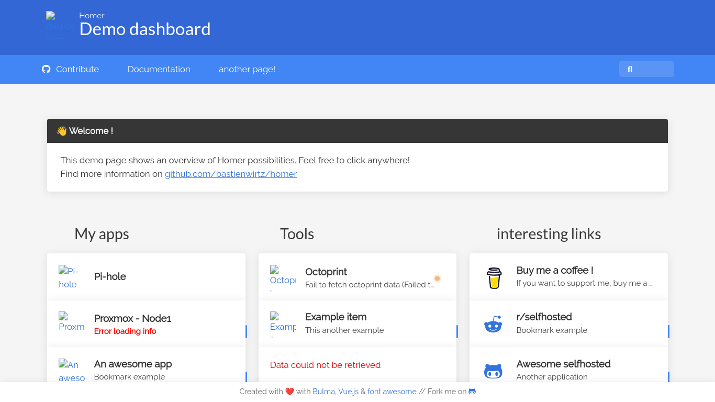
Homer allows you to customize your dashboard, add a search tool, and add keyboard shortcuts to navigate your dashboard more easily. You can also group together apps, interesting links, and tools for better organization.
7. Freeboard
Freeboard is a dashboard for the internet of things. It’s used by over 100,000 users, including large brands like Ford, to organize their applications.
There is a wide range of widgets available for the platform, but you can always add your own. It’s more for visualization than bookmark and app management, so if that’s what you were looking for, Freeboard is the right alternative to Heimdall for you.
For example, you can add widgets that display maps, temperature, weather conditions, and more!
It is fully customizable, and you can change colors, add branding, add your own logo, and more.
It is free to use – as long as the board you create is public. If you want to make it private, that is possible as well, but you would have to sign up for one of the paid plans – fortunately, they are affordable, and there is a free trial available.
You can always see updated pricing by heading to the homepage (linked above) and scrolling down to the payment section.
Different plans give you different amounts of private dashboards. All paid plans give you unlimited data, unlimited devices, unlimited public dashboards, and white label options.
A Freeboard board can be duplicated and used as a base for a new board (with permission). Also, you can share your boards via the special URL you will get so others can see it.
Also Read: Kubernetes vs Openshift
8. DashMachine
DashMachine is another application management dashboard available on GitHub.
I love the amazing picturesque backgrounds, as that is something missing from a lot of app management dashboards like Heimdall.
The design is beautiful and allows you to create separate page sections for torrenting, tools, media, files, and other links. It is fully customizable and has a useful sidebar for navigation.
9. Homepage
Homepage is an aptly-named homepage for your apps and services. You can configure it via YAML files, and it integrates with more than 25 popular services.
It is available in over 15 languages, and it has a beautiful, sleek, clean, and modern design. It is also static and incredibly fast, and it has top-notch security.
Homepage has Docker integration and integrates with services such as Jellyfin, Plex, qBittorrent, and many others! It also integrates with information providers such as Mastodon and Coinmarketcap, so you can easily see updated crypto information, for example.
There are also a number of utility widgets you can integrate into your dashboard, such as a weather widget showing updated weather conditions, a system stats widget that displays CPU and disk information, and a search bar that allows you to search the internet.
It has over 20 color schemes and supports background images. Overall, Homepage is a nice alternative to Heimdall that allows you to easily organize your documents, files, media, and applications.
Also Read: Best Slack Alternatives
10. Muximux
Muximux is a dashboard that allows you to manage and keep track of your web apps. All you need is to run a PHP enabled web server to use Muximux.
You can add, delete, and remove apps from the dashboard and put less frequently used apps in the drop-down menu, so they don’t clutter your screen but still remain accessible when you need them. Another cool option is the ability to add login pages for apps, so you don’t get too many login prompts.
I like how Muximux is mobile friendly. If you need to use your dashboard on mobile, it may work better for you than Heimdall – all the menu options move to the drop-down menu on mobile automatically.
Check Out: Best xCode Alternatives For Windows
11. Intranet Home Page
Intranet Home Page is a self-hosted personal dashboard that allows you to display feeds from publicly available and private sources. For example, it can display feeds from your self-hosted CalDAV calendar or RSS feeds from different sites.
Intranet Home Page can also display random images from a Piwigo album, alerts and data from the US National Weather Service, and more! There is also a quick links section where you can add a list of your most frequently accessed links.
It is an open-source project, and it is a lot newer than many of the other homepage dashboards on this list, so it is still a work in progress. Fortunately, there is a community of developers working on the project, so you can expect new features to be added going forward.
The app is highly customizable, and you can switch between dark and light mode, choosing the one that is easier on your eyes.
Check Out: Gatling vs JMeter
12. Astro
Astro is an open dashboard for all of your home lab services and a nice alternative to Heimdall if you are looking for something simple with a clean design.
You can integrate services such as Plex, Radarr, and Bazarr.
You can create separate tabs for your media and utilities, with the All Services tab displaying all of your services for quicker access.
Users can build Astro manually by cloning the repository or can install it by using Docker.
Explore: Best Splunk Alternatives
13. Hajimari
If you have a self-hosted Kubernetes application cluster, you might want to consider using Hajimari instead of Heimdall. It is a beautiful but simple application homepage with Kubernetes discovery.
Despite that, it does allow support for non-Kubernetes apps as well through custom configuration. It also supports search providers such as Google, DuckDuckGo, and YouTube.
You can choose between different themes and light and dark mode.
As an aside, Hajimari is Japanese for beginnings.
Also Read: Best Apigee Alternatives
14. Monitorr
Are you looking for a Heimdall alternative that allows you to quickly and easily check if your services are online? Monitorr is a self-hosted web application that checks the status of your connected applications.
It has a responsive mobile design and allows you to monitor the status of any external web app or service.
You can connect to services like Plex, Radarr, and Sonarr. If the app is online, there will be a green online indicator, otherwise, there will be a red offline indicator.
You can also have a widget on the homepage that displays CPU and RAM usage.
Also Read: Best Grafana Alternatives
15. Combobox
Combobox is a personalized homepage that allows you to add and organize widgets on different tabs on your homepage. Each tab can have multiple widgets, and you can customize the appearance and size of the widgets on each tab.
I find Combobox very useful, because unlike Heimdall, you don’t need to have a lot of technical skills to use it.
Here are some of the widgets you can add to your homepage:
- Bookmarks: Bookmarks can be organized in a tree structure. You can add links to your favorite apps and web pages.
- Notes: Combobox features an easy-to-use notes feature. You can add notes, rearrange them, and add multiple notebooks.
- RSS feeds: You can set up multiple RSS feeds to get news from different sites.
- Search: Add a search bar to your homepage, so you can easily browse the web.
- Password keeper: Store your passwords securely on your homepage by using the password keeper widget. It uses AES encryption, so your passwords are safe.
- Password generator: The password generator lets you generate new passwords that fit site requirements.
- Calendar: You can add a calendar widget with reminders of upcoming events.
There are also many other interesting widgets that are built into Combobox. For example, you can add games so you have something to do when you are bored.
The Sudoku game is known to many, but there is also the Netwalk game that IT people might find interesting. The Netwalk games involve taking on the role of network administrator with a scrambled network; you have to reconnect everything.
You can also add a flashcard widget for learning new languages. There are two dictionaries built in, but you can also upload your own dictionaries.
A calculator widget is also available.
In addition to the web search widget, which supports search engines like Google Yahoo, and Yandex, there is also a site search widget that allows you to search your local dashboard for anything.
Combobox seems to be made by a Russian developer. While most things are in English, there are some things in Russian, and there is a widget that displays foreign currency exchange rates from the Central Bank of Russia.
There is also support for a translation widget using Yandex’s translation tool.
Overall, I got a good impression of Combobox. The design seems a bit outdated, but the site is incredibly easy to use, and it makes organizing your life a lot easier.
Explore: Best Open-source Tools For Web Developers
16. Simple-Dash
Simple-Dash is a dashboard to forward to your services, including ones you host yourself and those you don’t. It has a sleek and simple design and fetches icons for all kinds of services and apps from FontAwesome.
According to the GitHub page, the goal of the developer was to create a dashboard that even their mom would be able to use, so if you find Heimdall too complicated for you, Simple-Dash might be a good alternative.
Check Out: Best Open-source Firebase Alternatives
17. Hiccup
Hiccup is a static web page that you can use for all of your links and services.
You can add featured links to your favorite services, and it works on both desktop and mobile. In addition to links, you can add images.
I liked how you can organize your links into different categories and columns, making it easier to stay organized.
The local site search tool allows you to quickly find any link you have added to Hiccup. You can also add a search bar that allows you to search the web across multiple search providers, such as Google, DuckDuckGo, and Amazon.
Also, you can use the hotkeys to quickly navigate your homepage.
Also Read: Best Docker Alternatives
Conclusion
If you liked the idea of Heimdall but didn’t really enjoy the interface and user experience, there are plenty of alternatives you may use. I recommend Homarr, Organizr, and Dashy, with Homer, Fenrus, Flame, and Homepage being pretty good choices as well.
If you can, I would recommend trying out a few of them and seeing which one you like best, because everyone will have different preferences.
